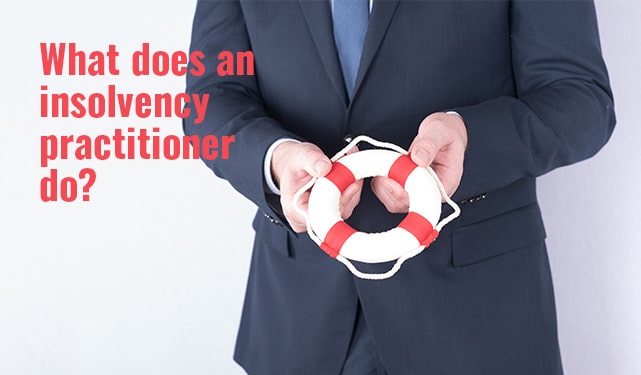Little Known Facts About Insolvency Practitioner.
Little Known Facts About Insolvency Practitioner.
Blog Article
Not known Details About Insolvency Practitioner
Table of ContentsInsolvency Practitioner Fundamentals ExplainedSee This Report on Insolvency PractitionerThe 10-Second Trick For Insolvency PractitionerSome Known Facts About Insolvency Practitioner.The Single Strategy To Use For Insolvency Practitioner
Whether or not you require to use a bankruptcy professional (IP) to liquidate your company relies on numerous aspects. While engaging an insolvency specialist for all forms of liquidation is not a lawful demand, doing so can frequently enhance the procedure and guarantee compliance with lawful requirements. Liquidating a business is an essential decision that includes considerable consequences.
It is a procedure used when a company does not have any type of lenders, or all of their financial institutions can be settled in full with statutory rate of interest. Recognizing the various kinds of insolvency processes can aid you figure out the most effective strategy for your company's liquidation or various other official bankruptcy treatments itself.
This is compulsory in order to follow legal requirements - Insolvency Practitioner. This is because IPs have the needed certifications and experience to make sure that the liquidation procedure is carried out according to all appropriate legislations and guidelines. By engaging an accredited insolvency practitioner, you can have satisfaction understanding that your firm's liquidation procedure will certainly be taken care of properly and in compliance with the pertinent lawful demands
The Ultimate Guide To Insolvency Practitioner
The insolvency professional is assigned as a liquidator and is in charge of handling the company and liquidator's debts exceptional liabilities and possessions. This process entails liquidating the firm's properties and distributing the proceeds to lenders. Upon conclusion of the procedure, the company is eliminated from the register at Firms Residence.
Failing to do so can result in individual liability for the business or director for the financial institution's debts. Voluntary liquidation, that includes Financial institutions' Volunteer Liquidation (CVL) and Participants' Voluntary Liquidation (MVL), is initiated by the business's directors and investors when they can no longer pay their financial obligations. In a CVL, the insolvency expert is assigned as the liquidator, in charge of taking care of company debts and all company properties.

Insolvency Practitioner Can Be Fun For Everyone
By evaluating the know-how and experience of potential bankruptcy specialists, you can make certain that you choose a practitioner who has the required certifications to manage your firm's liquidation procedure effectively. While bankruptcy practitioner-led liquidation is often one of the most ideal course of activity for business facing bankruptcy, there are alternative methods to consider, such as striking off and partial liquidation.
It's necessary to assess all offered choices prior to picking the following ideal solution or strategy for your business. Striking off business' registers is a much more straightforward and cost-efficient way to close inactive or little business without debts or assets. To strike off a firm, its name is eliminated from the Business Residence register by submitting type DS01.
Prior to going with striking off, it's critical to weigh the benefits and downsides of this technique and take into consideration whether it's the best choice for your service. Partial liquidation is another choice to bankruptcy practitioner-led liquidation, in which a business liquidates certain assets and obligations while remaining to run with the staying possessions and responsibilities.
A Bankruptcy Professional will have the ability to advise you of the very best program of action to take and guarantee that whatever runs efficiently. Regrettably, it is not possible to liquidate a business without a liquidator. Appointing an authorised useful reference bankruptcy practitioner is required for the procedure of voluntary liquidation to begin.
Insolvency Practitioner Things To Know Before You Buy
It is feasible to shut and liquidate your firm without using a liquidator, supplied your company is solvent and you fulfill the qualification demands to dissolve or liquidate it. Nevertheless, if your company is bankrupt, you might be called for to use a liquidator and start formal bankruptcy treatments. Here are a few other informative posts regarding firm liquidation in the UK:.
Being in a setting where you're not able to pay your business's lenders is extremely stressful. In an effort to avoid boosting the level of debt, lots of companies attempt to work out directly with their creditors and accept an informal arrangement. If the financial obligation is fairly little and owed to one financial institution, and the lender is being cooperative, getting in right into an casual debt setup is possibly the very best option, instead of searching the internet for 'an insolvency practitioner near me'.
On the various other hand, if there are several creditors and the degree of financial obligation is large, lenders may not be so eager or cooperative. In order to avoid liquidation or personal bankruptcy, it is much better to hire an insolvency professional to create formal proposals and bargain with financial institutions on your behalf.
The 3-Minute Rule for Insolvency Practitioner
Whilst it is a means to handle financial obligation, there are significant risks entailed with this kind of debt plan - Insolvency Practitioner. If a financial institution wants to get in into an informal plan (IA) pop over to these guys whereby the debtor has accepted make regular, if reduced, repayments to repay the financial obligation, it is very important to stick to the agreement

Consequently, the creditor is within their civil liberties to revoke the agreement and petition the courts for your firm to be liquidated Resources any time. An official setup that has actually been proposed by a bankruptcy professional in your place, and agreed by a lender, offers a much more secure option.
Report this page